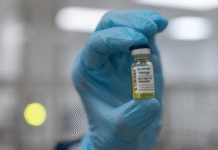BY TAN GUAN CHWEN
FROM time to time, I wake up thinking, “something feels wrong, I may be falling ill.” I have learnt not to dismiss this “gut feeling”, because more often than not, I end up with a mild cold, before bouncing back to normal. Beyond just instinct though, getting involved with Asian Microbiome Library (AMILI) has opened my eyes to the world of literal “gut feelings” – gut microbiomes and their impact on human health.
“All diseases begin in the gut.” -Hippocrates
As Hippocrates stated over 2500 years ago, the gut tells a lot about the state of one’s health and could be the source as well as the cure of many diseases. Ancient Chinese physicians recognised this as well – records suggest that they used a primitive Faecal Microbiota Transplant (FMT) procedure termed “yellow soup” to treat diarrhoea. Fortunately for the modern world, the FMT procedure has been refined over the years. FMT is currently a widely used treatment for the often-deadly Clostridium difficile infection, which arises from antibiotics use. Faecal samples from healthy donors are specially prepared and transplanted into patients, repopulating good bacteria in the gut, and restoring the optimal balance of microorganisms. This procedure not only offers hope for C. difficile patients, its success has also spurred research into using FMT as part of therapy for other diseases, such as Irritable Bowel Syndrome and even obesity! To facilitate ready, reliable access to FMT procedures in the region, AMILI has established Singapore’s first FMT preparation bank, sourcing, preparing, and distributing preparations to healthcare practitioners and research institutions in the Southeast Asian region.

AMILI’s in-house laboratory for preparing and storing FMT preparations
The field of gut microbiome science has also revealed myriads of connections between the gut microbiome and various other diseases, ranging from mental disorders to cancer and Type 2 diabetes. Science has shown that the gut could provide valuable contributions in understanding these human diseases.
As an increasingly recognised factor in shaping the brain, the gut microbiome has also become a new focus for research into brain-related disorders. Studies carried out on both mice and humans have been key to such research with findings suggesting the connection between microbial metabolites in the gut and brain function and behaviour, giving rise to the “brain-gut axis”.
Drawing the connections between these diseases is the first step. In the field of cancer research, growing information on the gut microbiome as a new biomarker has developed into looking at altering one’s gut microbiota to improve the response to cancer therapy.
Targeting the gut microbiome as a form of treatment has also been made possible as scientists begin to identify the bacterial species modulating certain diseases, such as in obesity and Type 2 diabetes. The classic studies of transplanting faeces from thin mice to fat ones and observing the fat ones losing weight and vice versa are decades old, but we now understand the central role of the gut microbiome in this.
“You are what you eat.”
‘Food as medicine’ takes on a new meaning as science reveals the connections between the gut and human diseases. As these connections between bacterial species and diseases grow, knowing more about one’s gut microbiome can be vital in maintaining one’s health status. As Dr Jeremy Lim, CEO and co-founder of AMILI (a clever compression of the words Asian Microbiome Library), acknowledges, “Fundamental discoveries relating to the gut microbiome and many diseases have been made in the last decade and we expect many more to be made. The convergence of deeper and deeper sequencing coupled with increased computing power and AI will allow the field to accelerate rapidly!” Fortunately for us, it is now possible to break down the composition of an individual’s gut microbiome and identify the diversity and abundance of bacterial species. This development is crucial in helping individuals take control of their own health, as microbiome-targeted diets or lifestyle changes can be implemented. This will be the next frontier in medicine: working on and with the living bacteria in our body to detect and treat diseases. AMILI is harnessing this connection and making it accessible to Asian populations with their customer gut microbiome sequencing service, AMILI Bio+Me. This service offers individuals the opportunity to find out more about their gut microbiome diversity and composition, and provides personalised Asian dietary recommendations to boost overall wellness based on their unique gut microbiome. The AMILI Bio+Me service will be launched for sale to customers on the 1st of October 2020.

The AMILI Bio+ME logo
This makes me extremely eager to see the direction that AMILI is headed towards. Located in Singapore, one of the top biomedical hubs of Asia, AMILI aims to advance microbiome science to benefit human health. Given the notable differences recorded in the gut microbiome based on geographic region, AMILI is building the first and largest multi-ethnic Asian Microbiome Reference Library. This library will be key to understanding Asian microbiome profiles and support further research into novel therapies for human health in Asia. As Dr Lim shared, “biomarkers, be they specific strains of microbes or microbiome related metabolites, will be identified and translated into useful diagnostic and therapeutic interventions in the next 5-10 years.” To propel the growth of the reference library, AMILI has launched the #poopsaveslives campaign to raise awareness of the gut microbiome among the general public, and encourage individuals to donate their stool samples to the library.

AMILI’s #poopsaveslives campaign
So, the next time you have a “gut feeling”, just remember that it goes beyond a metaphor. It is embedded in real science – science that AMILI is contributing to.
Note: The author is an undergraduate student at University College London (UCL) currently interning at AMILI. To understand more about microbiome and AMiLi, join a webinar organised by Science Media Centre Malaysia, The Petri Dish and AMiLi on 27th June, 3pm. Register here at Science Media Centre Malaysia’s Facebook Page.
















